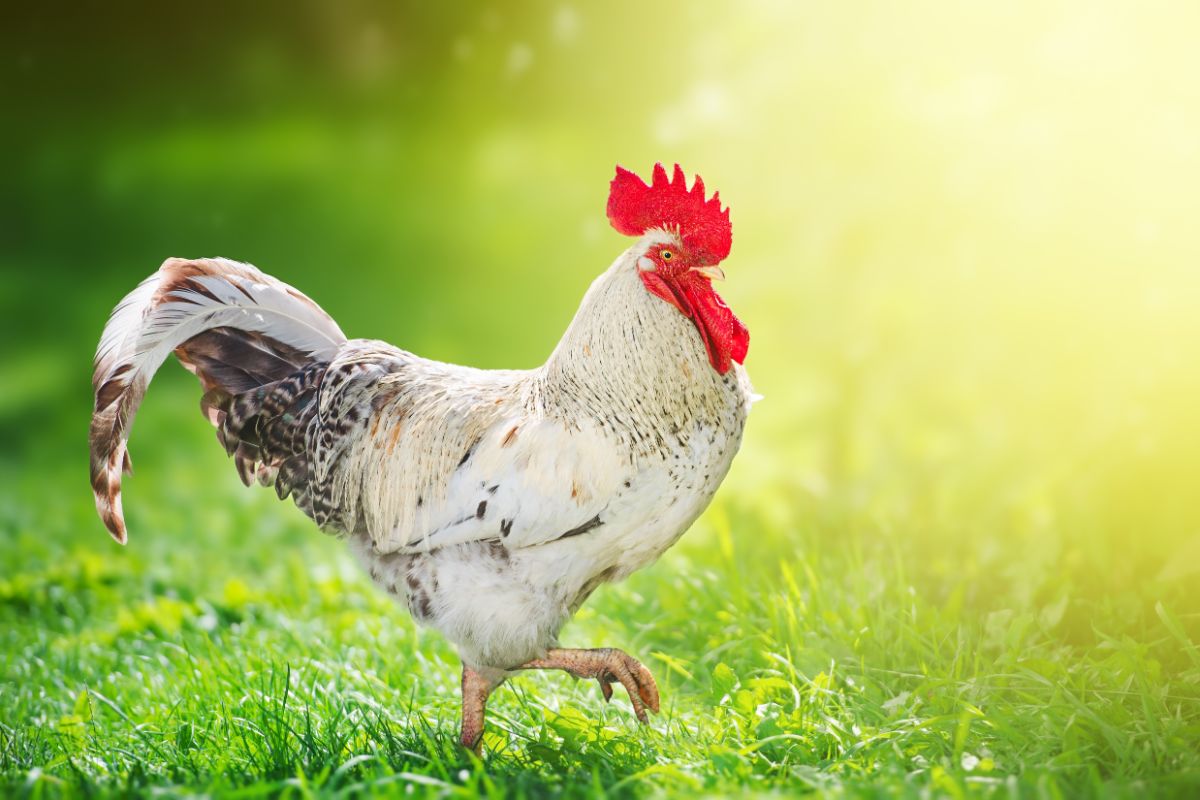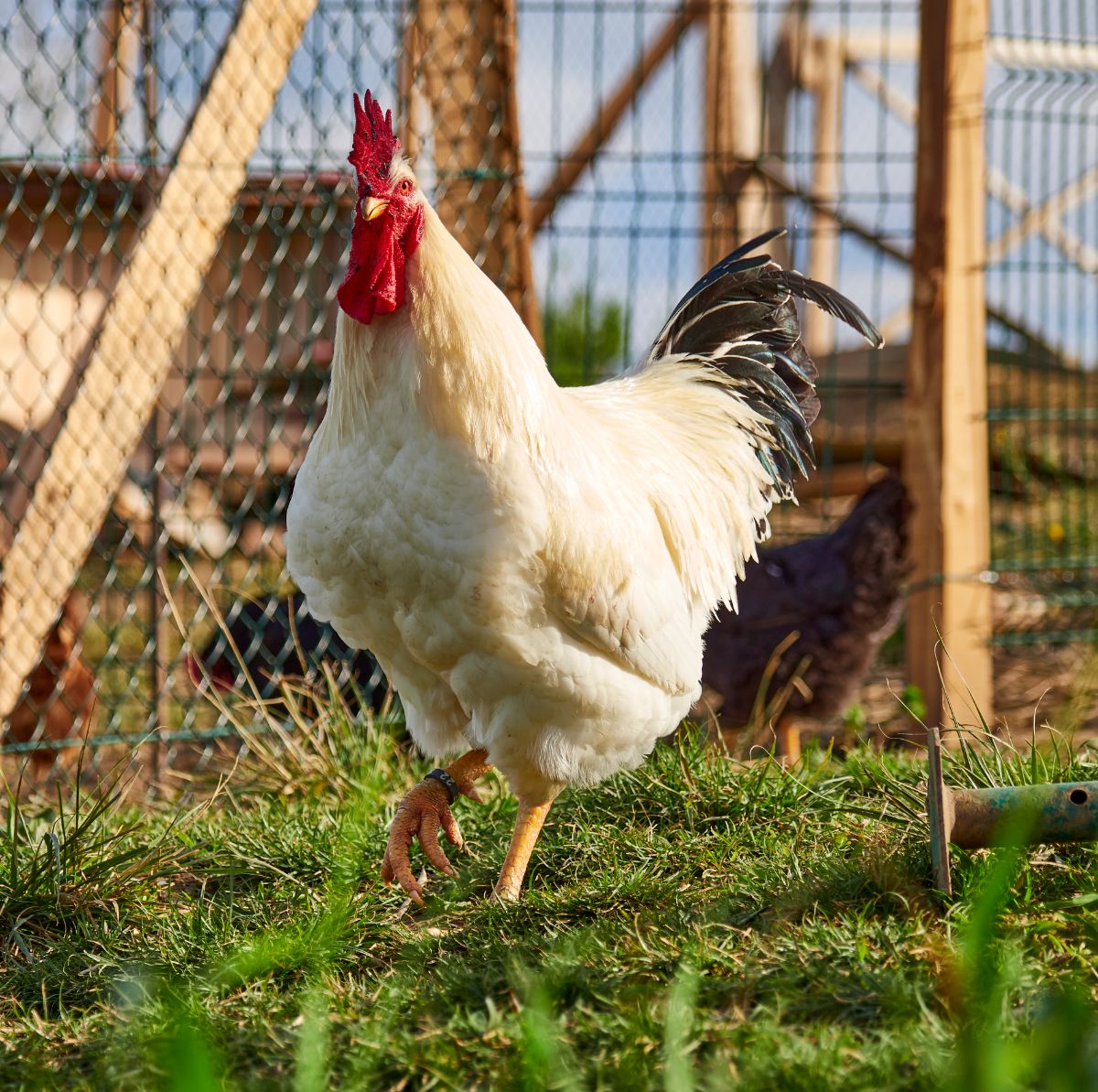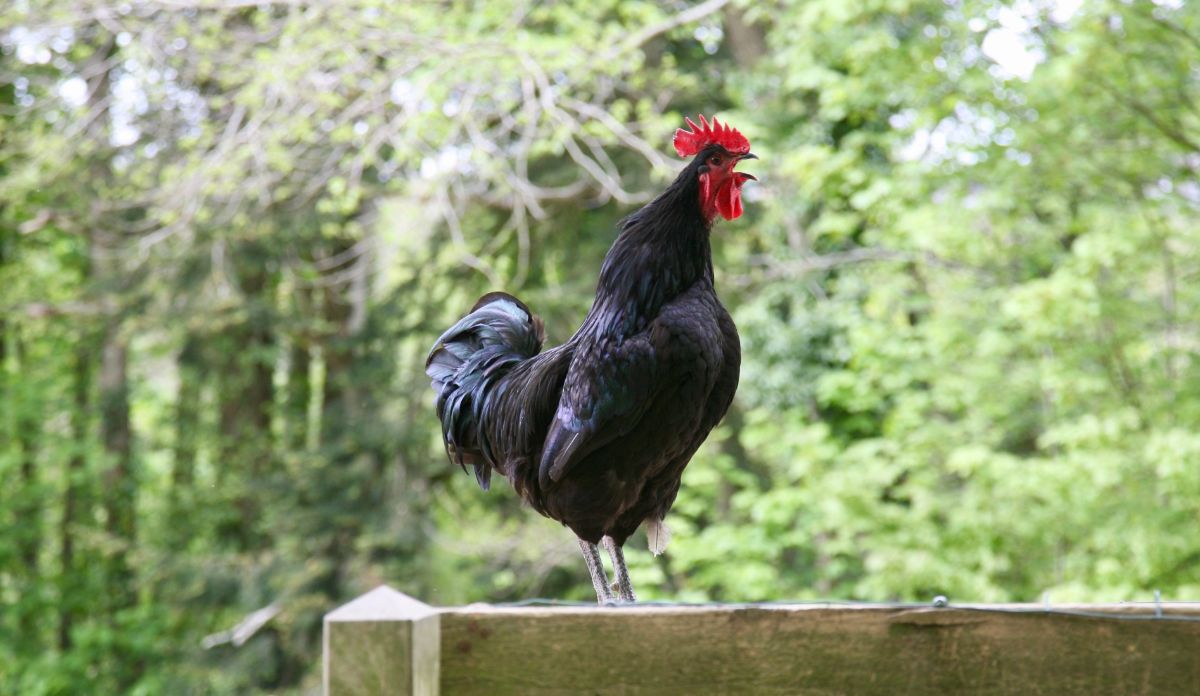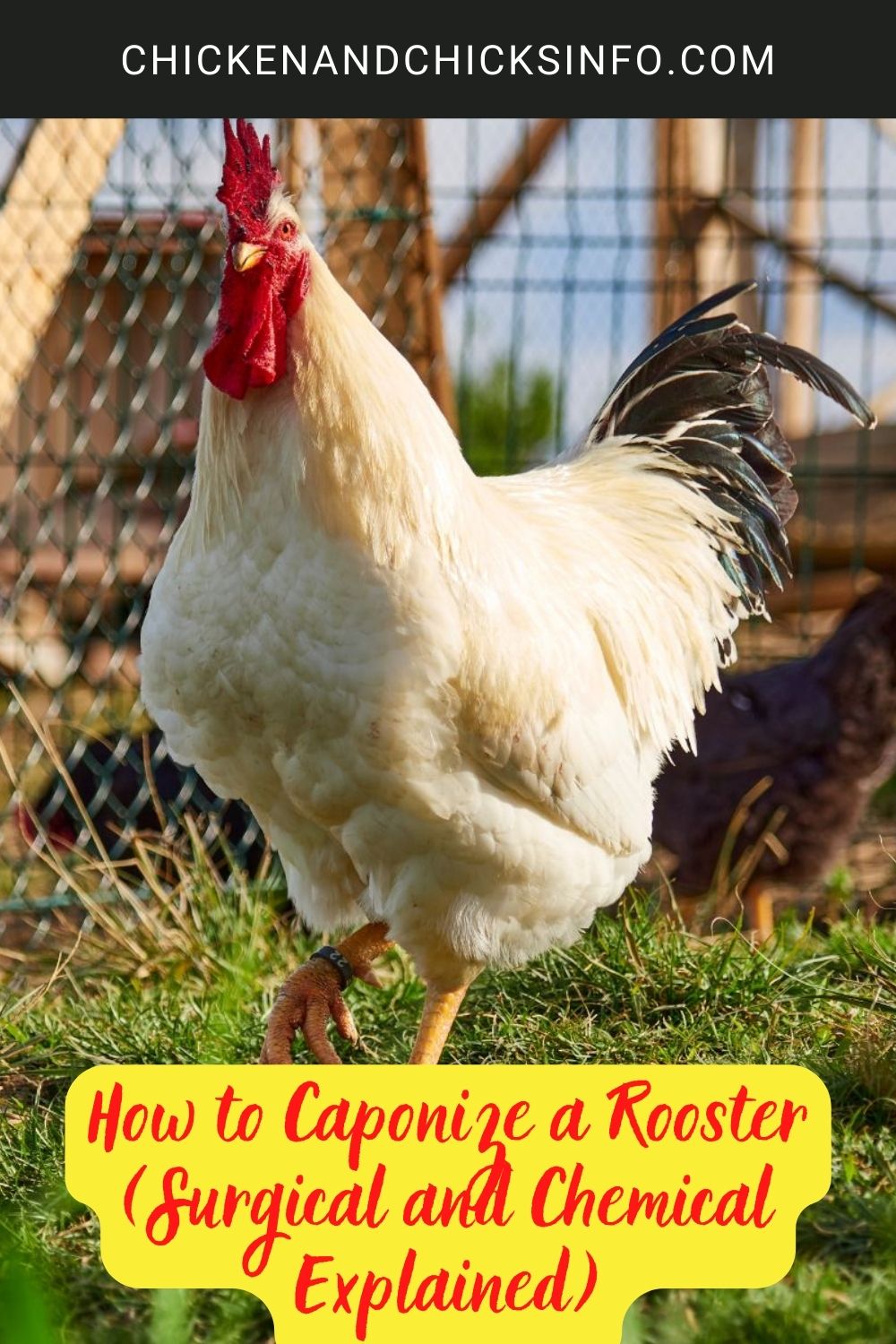
Interested to know how to caponize a rooster?
Caponization, or castrating a rooster is typically done to make the meat of a bird more succulent and tender.
There are two types of castration; these are chemical castration and surgical castration.
Here is how both of these methods are performed and why they're done.
Jump to:
Why Caponize a Rooster?
Caponization is the surgical removal of the testes of a cockerel. It is a major operation, and in some countries, it is illegal to perform.
The main benefit of caponizing a rooster is that the meat becomes much more tender and succulent.
This is because when the bird reaches sexual maturity, the male sex hormones (testosterone) make the meat tough and sinewy.
Removing the testes eliminates the production of testosterone, so the meat becomes more like that of a hen.
It's not common to castrate a rooster to stop it from reproducing as you would with a lot of animals.
This isn't necessary because hens lay eggs regardless of whether or not a rooster is fertile, or even if a rooster is present in the flock at all.
I have heard some owners say they had their roosters caponized to stop them from being so aggressive and crowing as much, but the results for this seem to be mixed.
By far, the most common reason to caponize a rooster is to make its meat more succulent for eating when the rooster ends up on the dinner table.
Related - More on what a capon chicken is and why it used to be done.
How to Caponize a Rooster

There are two methods of caponizing a rooster, chemical castration and surgical castration, here's how each method is performed:
How to Chemically Caponize a Rooster
Chemical castration of a rooster involves injecting an agent such as Suprelorin or Lupron into a rooster.
These drugs release chemicals into the bird that block the production of hormones and render them infertile.
To be honest, I've not been able to find out much more than that in terms of how this form of Caponization is done - and it's not something you can do yourself.
It's illegal to use these drugs in a lot of places, so, please do your research in-depth if you're interested in learning more about this method.
How to Surgically Caponize a Rooster
The surgical method is more common, and it involves cutting into the groin area of the rooster and removing the testes.
After the surgery has been performed, it is important to keep an eye on the bird for any signs of infection.
Both methods have their pros and cons, but I believe that caponizing a rooster surgically is the best way to go.
It's more expensive than using chemicals, but it gives you a better chance of preventing infection, and it is easier to find an experienced vet to perform it.
If you're interested in performing the surgical procedure yourself, I found this guide to be one of the most comprehensive available.
Do Caponize Roosters Crow?

There is a lot of discussion around whether or not caponizing a rooster stops them from crowing.
Some people say that the surgery eliminates the bird's ability to crow, while others say that they still crow but not as much.
I haven't found any definitive answer on this - it seems to be something that varies from bird to bird.
If you're interested in caponizing your rooster specifically to stop it from crowing, I would suggest doing some research into how successful this has been for other people.
In my opinion, if you're going to go through the trouble and expense of caponizing your rooster, you might as well do it for the right reasons - because you want a more succulent bird to eat.
If you want your rooster to stop crowing, the best solution in my opinion is to use something called a no-crow collar.
No-crow collars are bands that go around a rooster's neck, and the pressure turns their loud crow into a muffled one that's much quieter.
No-crow collars are not as painful or as restrictive as they sound. I've seen several roosters wearing them, and they didn't seem to be in any discomfort.
In fact, they tend to carry on trying to crow like they have no idea they're wearing a collar - totally unaware that they're not making a loud crow.
What Age Should You Caponize a Rooster?
The age at which you can caponize a rooster will depend on the method you use.
Chemical castration can be done as early as 12 weeks old, while surgical castration can be done from six weeks old and up.
It also depends on the size and weight of the bird. Some breeds should be at least 1 lb in weight, and others need to be 1.5-2 lbs.
If you're going to carry out the procedure yourself, you should always run it past an experienced avian vet before doing anything.
Caponizing a rooster is not an essential procedure, so there is no rush to do it if your bird is still young.
Can You Caponize an Older Rooster?
The answer to this question is yes, you can caponize an older rooster.
However, I would still recommend doing it surgically rather than chemically, as the latter may have more health risks associated with it.
If you're interested in caponizing an older rooster, please do your research before proceeding - there are a lot of things to consider.
I'm assuming you're not thinking about doing it because you intend to eat the bird or sell it for meat.
Older rooster meat is not as palatable, it's much tougher and more stringy.
In Summary
In this article, I covered everything you need to know about how to caponize a rooster and the reasons why it’s done.
Please, always put the care and wellbeing of your birds first, even if they are being reared for meat.
You should never attempt to carry out a procedure as serious as caponing a rooster unless you’re with someone experienced or are acting on the advice of an avian vet.





